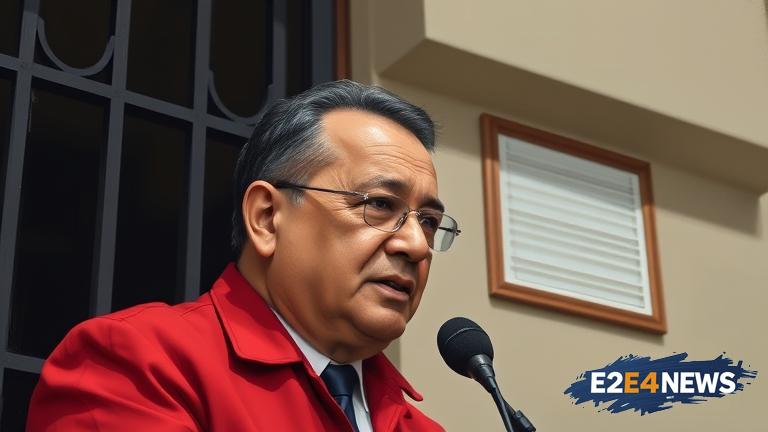In a highly anticipated decision, the Bogota appeals court has denied a request to release former Colombian President Alvaro Uribe from house arrest. Uribe, who served as president from 2002 to 2010, has been under house arrest since August 2020 on charges of witness tampering and fraud. The former president’s lawyers had argued that the house arrest was unconstitutional and that Uribe should be released due to his advanced age and health concerns. However, the appeals court rejected these arguments, citing the seriousness of the charges against Uribe and the risk of him fleeing the country or interfering with the investigation. The decision is a significant blow to Uribe’s bid for freedom and is likely to be appealed to the Supreme Court. Uribe’s case has been highly politicized, with many of his supporters arguing that the charges against him are politically motivated. The former president has maintained his innocence throughout the proceedings, claiming that he is the victim of a conspiracy to discredit him. The case against Uribe centers on allegations that he bribed witnesses to testify in his favor in a separate case involving his alleged ties to paramilitary groups. Uribe has denied any wrongdoing, but the prosecution argues that he used his influence to intimidate witnesses and obstruct justice. The appeals court’s decision is likely to have significant implications for Colombian politics, where Uribe remains a highly influential figure. The former president’s party, the Democratic Center, has been a major force in Colombian politics, and Uribe’s continued detention is likely to have an impact on the party’s fortunes. The case has also sparked controversy over the use of house arrest as a form of detention, with some arguing that it is an overly lenient measure for someone facing such serious charges. Others have argued that Uribe’s advanced age and health concerns make him a special case, and that he should be released on humanitarian grounds. The appeals court’s decision is likely to be seen as a victory for the prosecution, which has been pushing for Uribe to be held in a regular prison. The former president’s lawyers have vowed to appeal the decision to the Supreme Court, arguing that the appeals court’s ruling is unconstitutional and that Uribe’s rights have been violated. The case is likely to continue to generate significant media attention and public interest, both in Colombia and internationally. The use of house arrest as a form of detention has been the subject of controversy in Colombia, with some arguing that it is an overly lenient measure for serious crimes. Others have argued that it is a necessary measure to ensure that defendants are able to prepare their defense and receive medical attention if needed. The case against Uribe has also sparked debate over the role of the judiciary in Colombian politics, with some arguing that the courts are being used as a tool for political persecution. The appeals court’s decision is likely to be seen as a test of the independence of the judiciary, and its ability to withstand political pressure. The former president’s detention has also had significant implications for his party, the Democratic Center, which has been a major force in Colombian politics. The party has been divided over how to respond to Uribe’s detention, with some members calling for his release and others arguing that he should be allowed to face justice. The case has also sparked controversy over the use of social media to influence public opinion, with some arguing that Uribe’s supporters have been using social media to spread misinformation and intimidate opponents. The appeals court’s decision is likely to be seen as a significant setback for Uribe’s supporters, who had been hoping for his release. The former president’s lawyers have vowed to continue fighting for his freedom, and the case is likely to continue to generate significant media attention and public interest in the coming weeks and months.





